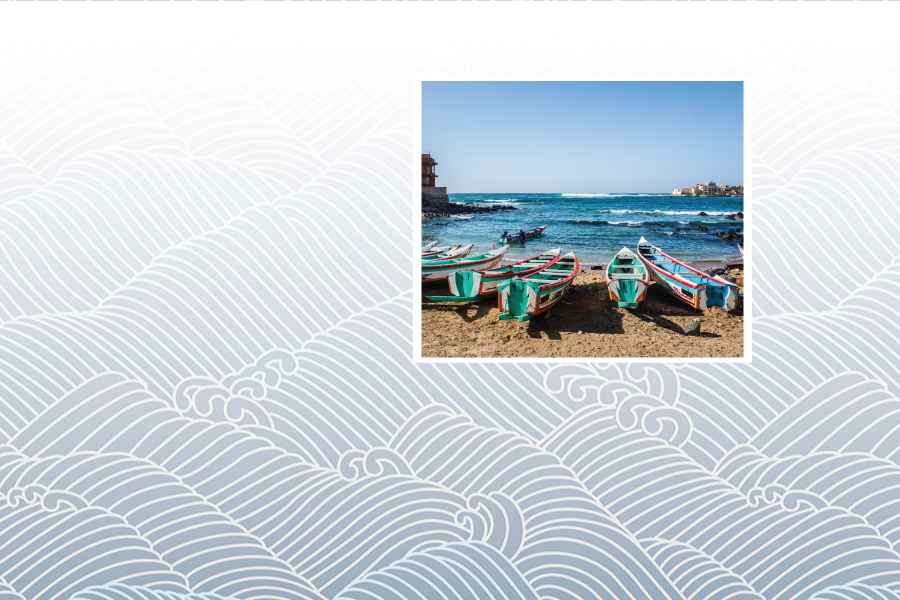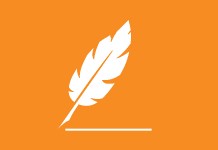Senegal and Ivory Coast belong to two major regional entities – the Economic Community of West African States (ECOWAS) and the West African Economic and Monetary Union (WAEMU). They are also members of the Organisation pour l’harmonisation en Afrique du droit des affaires (OHADA), which translates as the Organisation for the Harmonisation of Corporate Law in Africa.
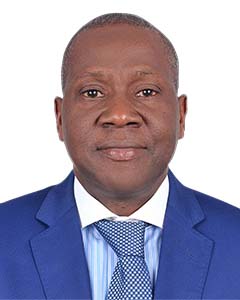
Managing Partner
Tel: +221 762 236 330, +225 8859 7828
Email: mhkebe@gsklaw.sn
ECOWAS is an association of 15 West African entities aimed at having one economic and monetary zone with uniform legislation on main sectors such as economy, trade, natural resources and diplomacy, to mention a few. The member countries are Benin, Burkina Faso, Cape Verde, Ivory Coast, The Gambia, Ghana, Guinea, Guinea Bissau, Liberia, Mali, Niger, Nigeria, Sierra Leone, Senegal and Togo.
WAEMU, also known by its French name as Union Economique et Monétaire Ouest Africaine (UEMOA), is an entity of eight West African countries having the same currency, reserve bank and business law. The members are Benin, Burkina Faso, Ivory Coast, Guinea-Bissau, Mali, Niger, Senegal and Togo. They are working towards greater regional integration, with unified external tariffs.
OHADA is a uniform system of business law and dispute resolution shared by 17 African countries: Benin, Burkina Faso, Cameroon, Central African Republic, Chad, Comoros, Democratic Republic of Congo, Ivory Coast, Equatorial Guinea, Gabon, Guinea, Guinea-Bissau, Mali, Niger, Republic of the Congo, Senegal and Togo.
These states share the same business laws, based on a civil law system, namely Uniform Acts. The following acts are currently applicable within the OHADA countries:
(1) Uniform Act on General Commercial Law;
(2) Uniform Act on Securities;
(3) Uniform Act on Commercial Companies;
(4) Uniform Act on Insolvency;
(5) Uniform Act on Arbitration;
(6) Uniform Act on Accounting Systems;
(7) Uniform Act Relating to Co-operative Companies;
(8) Uniform Act Relating to Goods Road Transportation Contracts; and
(9) Uniform Act on Debt Recovery and Enforcement.
These acts facilitate and encourage domestic and foreign investment in the region. OHADA members have a common business legislation, and a common court dealing in last resort with business and commercial disputes. This court, based in Abidjan, Ivory Coast, also has an arbitration centre. Therefore, doing business with Senegal and Ivory Coast will benefit beyond a local perspective and environment, due to this regional scope.
Business entity
The main framework regarding business entity derives from the OHADA Company Act, which allows the following entities to be registered in member countries: Private companies; sleeping partnerships; private limited companies; public limited companies; joint ventures; de facto partnerships; and economic interest groups.
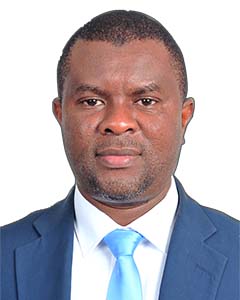
Partner
Tel: +221 766 457 306, +221 338 211 916
Email: maadieng@gsklaw.sn
Investment incentives
On the local level, the Investment Code enacted by the two countries provides several incentives aimed at making business more profitable and attractive. To be eligible to such incentives, the investment should be in one of the following sectors:
Agriculture; mining; ports; airports; railways; infrastructure; fishing; health; tourism; and services.
In Senegal, the cost of the prospective investment must be equal to or more than CFA100 million francs (US$182,000) and the prospective investment must provide the creation of a new activity. Regarding the advantages granted, two steps should be mentioned.
First step:
- Exoneration from custom duties required at the moment of importation of materials that are not produced or manufactured in Senegal, and which are specifically intended to serve in production or in operations within the framework of the contemplated project.
- Adjournment of value-added tax, payable on entry, for materials that are not produced or manufactured in Senegal, and which are specifically intended to serve in production or in operations.
- Adjournment of value-added tax included in bills by local providers of goods, services and works, which are necessary for the realisation of the approved project.
Second step. There are two tax regimes:
- The regime for new enterprises provides exoneration from the employer’s fixed contribution (contribution forfaitaire à la charge des employeurs, or CFCE) for five years, particular benefits concerning the profits tax, and rebate from the amount of taxable profit as part of its investment.
- The regime for projects of extensions provides exoneration from the CFCE for five years if the number of jobs created within the framework of the agreed project of investment is more than 100, or if at least 90% of the jobs created are based outside the Dakar region, this exoneration can be extended up to eight years. For each fiscal year, the amount of rebate cannot exceed 25% of taxable profits.
In Ivory Coast, the new Ivorian Investment Code, adopted in 2018, provides several incentives aimed at facilitating foreign investment in the country. It guarantees fair and equitable treatment for foreign investors, unlimited access to foreign exchange, free transfer of assets subject to compliance with tax legislation, free access to raw materials, as well as a guarantee of repatriation of expatriate workers’ remuneration.
Although foreign investors have no specific constraints to invest in conjunction with local entities, or to recruit local staff, the Investment Code defines specific incentives for foreign investors who willingly apply local content requirements.
The Investment Code provides tax credit for companies that apply local content requirements and invest a certain amount, depending on the geographical location where the investment is done. These advantages are provided for investments in the hospitality, agribusiness, health and agricultural sectors.
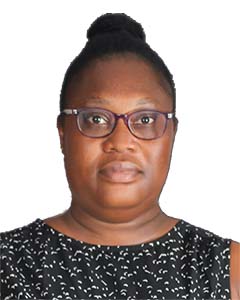
Counsel
Tel: +225 8936 7282, +225 2024 4601
Email: a.kobenan@gsklaw.sn
Ease of doing business
Senegal hosts a large stock of FDI, and the government is leading an active policy to encourage FDI inflows. According to the UN Conference on Trade and Development’s 2020 World Investment Report, FDI in Senegal rose from US$848 million in 2018 to a record high of US$983 million in 2019.
According to data collected by the World Bank, starting a business in Senegal takes less than five days. This is essentially the result of several reforms that have simplified the process. The Investment Council has been set up under the auspices of the President of the Republic Cabinet to assess the obstacles that block investment, and to find adequate solutions. One of them was to enlarge the competence of APIX, the national investment Agency, making it a one-stop shop for investors wishing to start a business in Senegal.
The same approach applies to Ivory Coast, where the investment promotion centre, Centre de Promotion des Investissements en Côte d’Ivoire (CEPICI), is a one-stop shop for investors, and facilitates all processes needed to set up and run a business. The World Bank’s 2020 Doing Business Report ranks Ivory Coast 29th and Senegal 60th out of 190 economies with regard to facilitating business start-ups, ahead of most countries of the sub-region.
New commercial court
The efficiency of a judicial system providing suitable dispute resolution is among the top priorities of Senegal and Ivory Coast. Indicators of the Doing Business report had previously emphasised the slow process of the judicial systems in both countries, which made enforcing contracts a difficult process. To address this problem, several measures have been implemented.
In Ivory Coast, in July 2012, a new commercial court dedicated especially to business cases was set up in Abidjan, the economic capital of the country. With this new court, all disputes arising under the scope of OHADA acts will be settled in a swift timeline by judges trained in commercial law.
The new court has played a key role in shifting Ivory Coast’s ease of doing business ranking from 173rd in 2013 to 167th in 2014. On enforcement of contracts, it shifted ranking from 127th to 88th. In addition, new commercial divisions have been set up in courts to improve efficiency and reduce the cost for contract enforcement.
In Senegal, a new commercial court was set up in Dakar, the capital, where most of the commercial litigations are registered. With this new court, all disputes arising under the scope of OHADA acts will be settled in a swift timeline by judges trained in commercial law. In 2019, the court registered more than 5,000 new cases. The court has also set up new rules dealing with case management, allowing a more efficient monitoring of cases in the court docket, from the filing of the claim until the judgment is issued.
The last important reform is the recent adoption of a new Act on Public-Private Partnership Contracts, in 2021, in Senegal. This act is a new step of a broader plan aiming to strengthen the legal landscape of the country. Ivory Coast also adopted, in 2018, a new Investment Code aimed at making the country more business-friendly for investors.
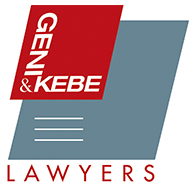
Mouhamed Kebe
Managing Partner
Tel: +221 762 236 330, +225 8859 7828
Email: mhkebe@gsklaw.sn
Mohamed A Dieng
Partner
Tel: +221 766 457 306, +221 338 211 916
Email: maadieng@gsklaw.sn
Annick Kobenan
Counsel
Tel: +225 8936 7282, +225 2024 4601
Email: a.kobenan@gsklaw.sn
Geni & Kebe
47 Boulevard de la République
15023 Dakar, Senegal
Tel: +221 33 821 1916, +221 33 822 4636
Residence Nabil, 3/F Avenue Nogues
Plateau, Abidjan, Ivory Coast
Tel: +225 2024 4601
Email: info@gsklaw.sn
www.gsklaw.sn










